Last month our parish, St. Barnabas, here in Chicago, began a new program for adults. It’s held on the first Sunday of every month and led by Fr. Bill Kenneally. Fr. Bill is a retired Catholic priest and was the beloved pastor for 22 year at St. Gertrude Parish, located in the Edgewater neighborhood on Chicago’s North side. He now lives in our Beverly neighborhood, helps out with masses at St. Barnabas and participates in adult faith formation at our church.
Fr. Bill’s popular Bible studies are not new to our parish, he has been leading them for years, usually offering a weekday morning option and a weeknight option for six or more consecutive weeks. What’s different about this time around is that parents of children who attend religious education on Sunday mornings, a few times a month at our parish, now have the opportunity to participate in their own catechesis and faith formation after we drop off our kids. Also, instead of doing six weeks in a row, we thought some busy moms and dads might appreciate it being a monthly event.
As a spiritual director for St. Barnabas’s women’s retreat program, a.k.a. Christ Renews His Parish (CRHP) and member of the Adult Faith Formation Commission, providing opportunities for adults in our parish to learn more about, discuss and practice our faith is important to me. I am so excited about this Sunday School for Adults both personally and on behalf of other adults in our parish.
This is not just for parents or those with children in religious ed. If you live in the Beverly area and your children go to St. Barnabas school or Sunday mornings is a convenient time for you to attend, you are welcome to join us. For those who aren’t able to participate in our “Sunday School for Adults,” missed a session, or want to revisit what we discussed, I thought it would be interesting to share my notes.
This morning was our second session, but I want to first share about last month’s session and then I will follow-up soon with a post about today’s gathering. Fr. Bill refers to this Sunday School/Bible Study as “So, You Want to Learn About the Bible…” He says that “most Catholics do not pick up the Bible.” He believes one of the reasons is because “it is a very difficult book.” He thinks “that if we know a few things about how the book became what it is and why — then reading the Bible can become even more interesting.”
Here’s a list of the topics for each session and as I add posts about the sessions, I will hyperlink them here:
Session 1: How to Tell the Story of the Life of Jesus: From the Gospel of Mark to the Movies
Session 2: Did St. Paul Get the Story Right and How Much Influence Did He Have?
Session 3: Did God Need a Church to Keep the Story of Jesus On the Right Track?
Session 4: What About the Mistakes in the Story, Tough Sayings and the Apocalypse?
Session 5: Let’s Go Through Mark’s Gospel, Step by Step. It Only Takes Fifty Minutes
Session 6: Do You Want to Know More About….?
~~~~~~~~
SESSION 1: HOW TO TELL THE STORY OF THE LIFE OF JESUS
These are my notes from Fr. Bill’s outline & presentation. I get that for many this is a review of information you may already know, but personally I find it helpful to revisit and learn about from a new perspective (Fr. Bill’s).
A. Sacred Scripture
- Religions have sacred scripture, like countries have a story of their history and heroes.
- Sacred scripture is handed down and carried on.
- It is different than literature or books.
- It is essentially the constitution for each religion.
- The book is the important thing, the rest is commentary.
- Going through books with a teacher/mentor makes all the difference.
- It’s the difference between a conversation and a lecture, as well context vs. literal interpretation.
- Fr. Bill shared how for years he tried to start and couldn’t get into Ulysses by James Joyce.
- For those (like me) who haven’t read it, the book is about one day in the life of Leopold Bloom.
- Then he took a class about Ulysses lead by the poet Paul Carroll, which totally changed his perspective.
- Now it is one of Fr. Bill’s favorite books, one that he returns to over and over again.
- “Once you get hooked on a book, you think about it all the time.” ~ Fr. Bill
- Fr. Bill shared that March 16th is “Blooms Day” and every year there are activities here in Chicago where people dress up and celebrate Ulysses.
- Most religions have a leader or messenger, who is considered a prophet, that was considered to be inspired by and/or speak for God. Those prophets significantly influenced the tenants of their faith.
- Jews have Moses
- Christians have Jesus
- Mormons have Joseph Smith
- Muslims have Mohammed
- Likewise, religions have sacred scripture/books of wisdom.
- Jews have the Torah (also referred to as the Old Testament by Christians)
- Christians have the Bible (including the Old and New Testaments)
- Mormons have the Book of Mormon
- Muslims have the Koran
B. The Bible
- Christianity has accepted the Hebrew’s sacred books (Torah/Old Testament) and the Greek gospels and letters (New Testament). We call it “the Bible.”
- The Bible is not a book… It is made up of many books!
- There are 72 books in the Catholic Bible, all of which aren’t necessarily connected to each other.
- Each book has it’s own back story and it helps to know the context and style of the author to better understand them.
- Some books in the Bible are poetic/lyrical and have even become songs.
- Other books in the Bible are more historical.
- For the most part the books in the Bible are NOT LITERAL.
- The Old Testament has 45 books.
- The first 5 books in the Old Testament are the Torah.
- The other 40 books are commentary about the Torah.
- The New Testament has 27 books.
- The first 4 books in the New Testament are the Gospels (attributed to Matthew, Mark, Luke & John).
- The other 23 books are commentary on the Gospels.
- There are different schools of thought on how to use scripture.
- Jesus was a deep thinker, especially when it came to the Torah/Jewish scriptures.
- Much of the Gospel’s are about Jesus’s commentary on the Old Testament/Torah.
- Jesus was a reformer of the Jewish faith.
- The Bible has extraordinary depth, but the way it is told is complicated.
- Jesus believed and taught that everyone is special, not just specific tribes (i.e. Jews).
- Jesus was trying to broaden the views of his disciples.
- Those who quote the Bible literally misunderstand the background of the writers, who sometimes exaggerated for effect.
- For example, Paul would say in his letters essentially, “What Jesus was trying to say was… We are different cells, but all one body.”
- The New Testament was written in Greek.
- Greek was the language that intelligent people wrote and spoke back then.
- It was a “popular” Greek that people were likely to understand.
- The Old Testament was written in Hebrew, a very sophisticated language.
- Canonicity = How do you decide what makes it into the Bible?
C. Mark’s Gospel
- Mark was the first to write down what Jesus said, using stories and parables.
- After Jesus has been dead for 40 years, Mark decided it was important to write these stories down.
- The world was supposed to end, but they realized it likely wouldn’t be tomorrow.
- Early Christians would meet on Sundays, break bread and then tell stories/reminisce about Jesus.
- They had incredible memories, with every detail in place about Jesus’s life and ministry.
- Mark heard these stories about Jesus and decided to call them “the Good News” or the Gospel.
- Mark started writing about the passion, miracles and Jesus as a preacher.
- Other people came a long and decided to “comment” on sacred scripture, which made up subsequent books in the New Testament.
- Matthew and Luke had Mark’s Gospel as an outline and wrote their stories/Gospels as commentary.
- Mark chose not to include Jesus’s birth/the Christmas story in his writing/Gospel.
- Matthew and Luke thought Jesus’s birth was a good/worthwhile story to share.
- John came along and decides to write a commentary on all of the other Gospels (there were 30) and it was really different.
- Apocrypha = Gospels that weren’t accepted in the Catholic Bible.
D. The Many Ways the Story of the Life of Jesus Has Been Retold
- Prayers, Hymns, Preachers, Catechisms, Pronouncements
- Liturgists expect the congregation to have read the readings ahead of time, but that’s not always realistic, especially for busy people, including parents with young children.
- Ideally the Gospels are to be proclaimed.
- Fr. Bill thinks the Gospel should be projected on a big screen with pictures, to help people follow along.
- A lot of people need the text in front of them.
- Fr. Bill likes to go to different churches and see how they do things.
- One time he saw a priest who went back and dissected the readings during his Homily.
- “We’re tweet-sized in our attention span and only have so many characters.” ~ Fr. Bill
- Today we have books by Coetsee, Bill O’Reilly, Reza, Aslan, Rice and many others.
- We have movies, religious classics, readings in church, courses in comparative religion, examination of mythology in literature classes and Bible studies by experts.
- How do we get the story of Jesus? That’s what writers are always thinking about… a different angle!
- What’s the angle we take in our families? Something for us to think about…
~~~~~~~~
Books and Other Resources Fr. Bill Mentioned in Session 1:
Zealot: The Life & Times of Jesus of Nazareth by Reza Aslan
- Fr. Bill says it is a very interesting book.
- The author studied the text of the Gospels and tells what was going on in those times.
- Aslan claims that Jesus was a Zealot who was trying to overwhelm the Roman Empire.
- According to Fr. Bill, zealot really means terrorist.
- Jesus picked Simon, who was a zealot, as one of his disciples.
Killing Jesus by Bill O’Reilly & Martin Dugard
- He also wrote books about Lincon’s and Kennedy’s deaths called Killing Lincoln & Killing Jesus
The Testament of Mary by Colm Toibin
- A book about Mary, written from the view-point of Jesus’s mother
National Geographic Who’s Who in the Bible: Unforgettable People and Timeless Stories from Genesis to Revelation by Jean-Pierre Isbouts
- Which Fr. Bill said is a big book that takes a comprehensive look at Who’s Who in the Bible.
~~~~~~~~
Next Time/Week (on Sunday, November 10th): We will look at how St. Paul influenced the way we think about the life and teaching of Jesus.
I will share my notes from Session 2 with Fr. Bill: Did St. Paul Get the Story Right or Did He Mess it Up?
~~~~~~~~
For those in the Beverly area, our next Sunday School for Adults session will be held on Sunday, December 8th from 8:30 -9:45 a.m. in the Church Hall (which is actually the second Sunday of December, because of the Thanksgiving Holiday Weekend).
You can also hear Fr. Bill share more about the Bible on Monday, November 4th at 9:30 a.m. or Thursday, November 7th at 7:00 p.m. This week he will be talking about the Fourth Session, in his Six Part Series, titled: “The Mistakes in the Story, Tough Sayings and the Apocalypse.” All sessions are held in the Church Hall.
~~~~~~~~
What do you think about all of this? (whether or not you are Christian and/or Catholic)
If you have read and/or studied the Bible, do you agree with Fr. Bill’s take on the books in and writers of it?
I would love to hear your reactions to the notes I shared from Fr. Bill’s first session about “How to Tell the Story of Jesus.”
If you do choose to share your thoughts and reactions, please be respectful of others’ opinions. I believe that there is more than one way to interpret sacred scripture and am not trying to start a debate about this here. Thank you.
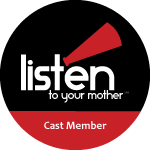






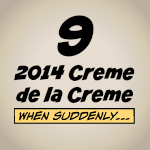
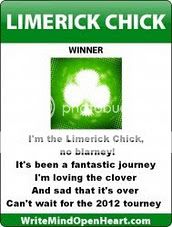
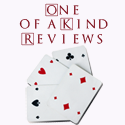
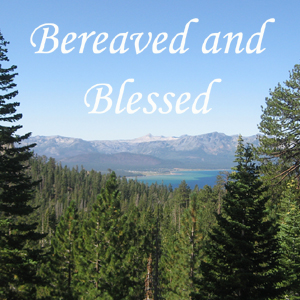
{ 1 comment… read it below or add one }
Thank you for these notes — I learned some things! Fr. Bill sounds like a very engaging teacher. I agree that going through a book with a teacher (or even a fellow student) makes a lot of difference. A friend and I have been reading one of Thomas Merton’s books together, and I’ve gotten so much more from it this way than by skimming it on my own.
Hope recently posted..Sunshine Award
{ 1 trackback }